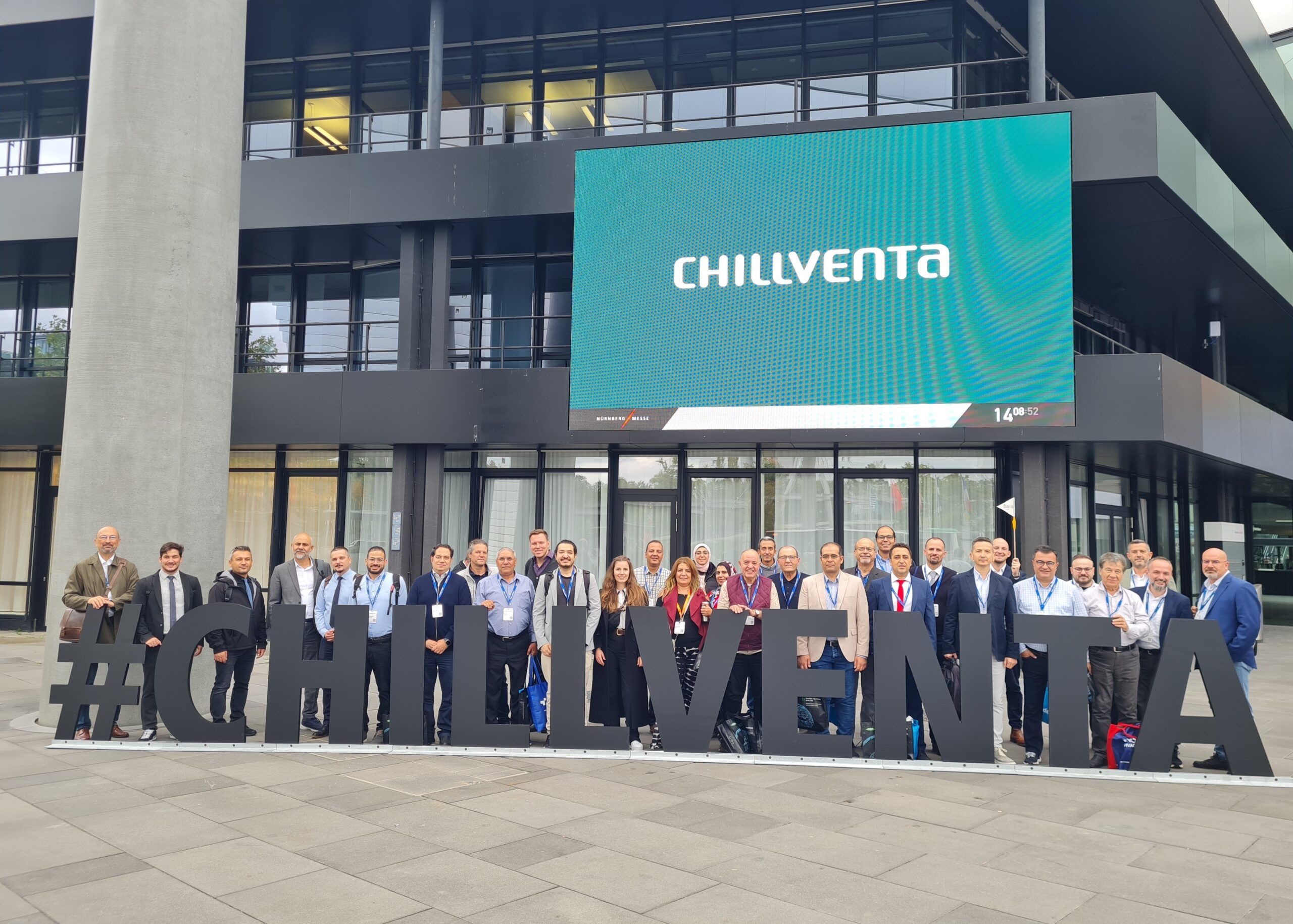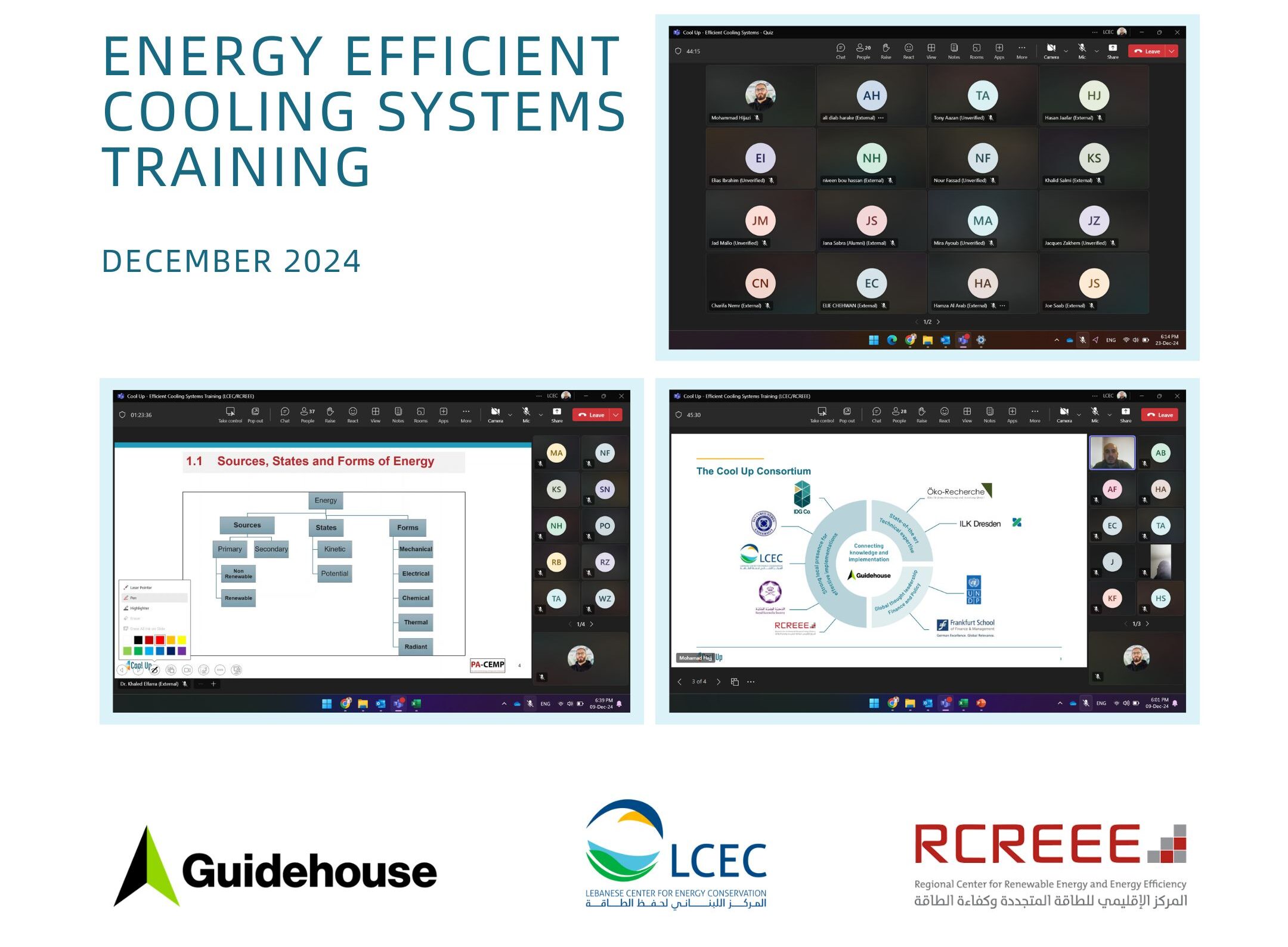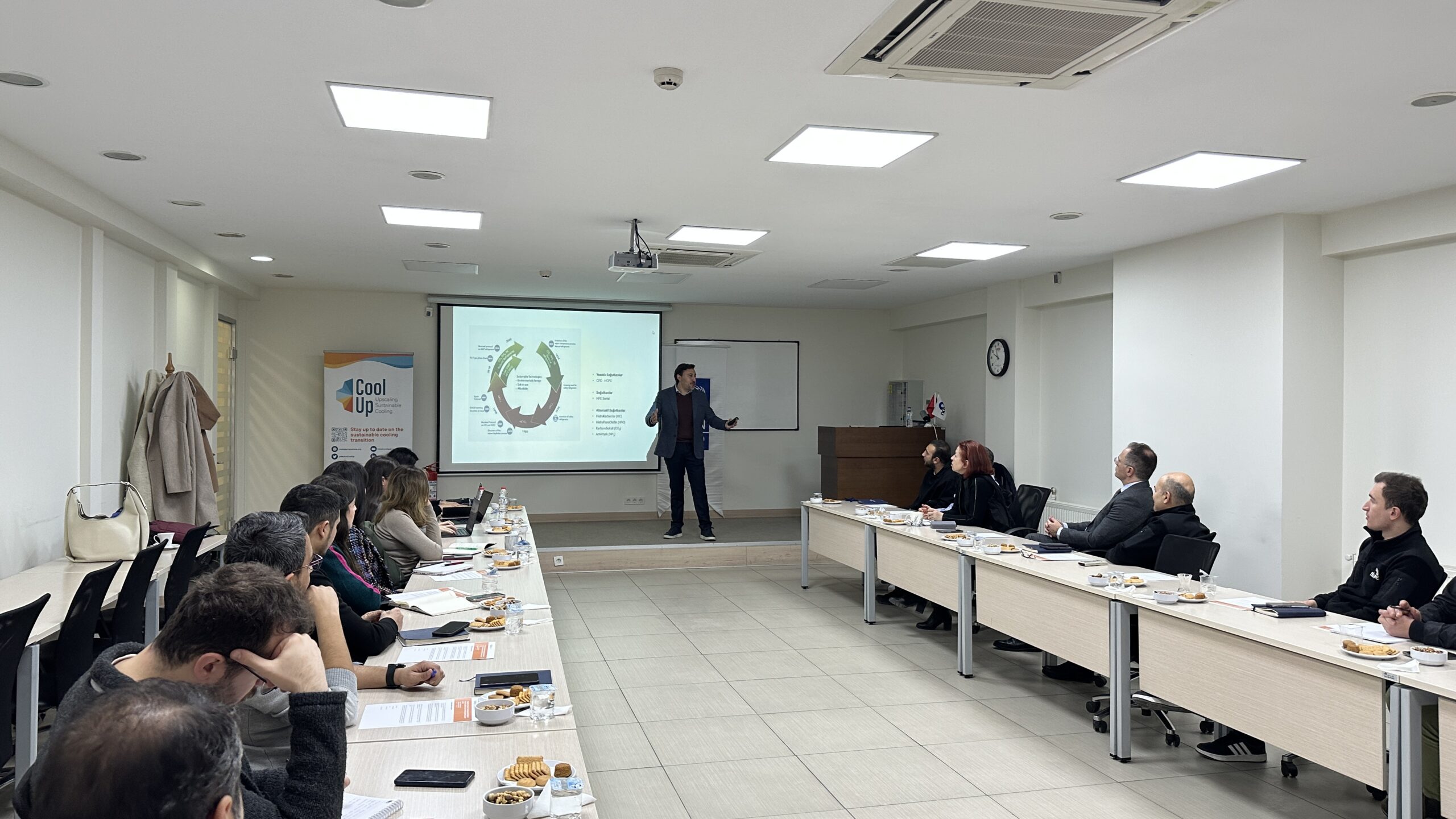Themes
Capacity building and training
Effective capacity building and training are essential to empower both the public sector and private sector stakeholders to support the adoption of new technologies and practices in sustainable cooling. In Cool Up, we are committed to empowering our partner countries through targeted capacity-building initiatives that enhance technical skills and support the development of vocational and technical education curricula.
Our approach
The Cool Up programme focuses on bolstering existing capacities in partner countries and reinforcing national efforts to extend and retain these capacities. We deliver technical training modules and support curriculum development tailored to meet the unique needs of our partner countries to ensure long-term and institutional capacity building. Cool Up’s approach includes fostering regional and international cooperation through regional conferences, study tours, webinars, and various media and online events to accelerate the transition to sustainable refrigeration and air conditioning (RAC) technologies.
Cool Up capacity building actions
Cool Up collaborates with partner country governments and educational institutions to design and implement robust capacity-building programmes.
Key areas of support include:
- Technical skills training: We establish and deliver technical training modules designed to enhance the skills of professionals in the cooling sector. These modules cover the latest advancements in low-GWP refrigerants and energy-efficient cooling equipment.
- Curriculum development support: Cool Up assists vocational schools and universities in developing and updating curricula that reflect current and emerging technologies in sustainable cooling, ensuring that education systems produce graduates with relevant and up-to-date expertise.
- Regional exchange: By organizing regional conferences, Cool Up promotes regional exchange and cooperation. These conferences serve as platforms for sharing knowledge, new solutions, and approaches to low-GWP refrigerants and energy-efficient cooling technologies.
- Study Tours and webinars: Decision-makers are provided with opportunities to participate in study tours, presenting the most recent cooling technologies onsite. These tours enable knowledge exchange and experience sharing. Additionally, webinars are hosted to reach broader audiences interested in sustainable cooling technologies.
- Media and online events: To support our initiatives, we publish documents and materials accessible to key stakeholders and the public. All events and materials are designed to be gender-inclusive, aiming for equal participation from men and women.
- Comprehensive capacity building: Beyond technical skills, we offer a broad range of capacity-building initiatives, including leadership training, institutional strengthening, and strategic planning support.
Cool Up’s capacity building and training initiatives are tailored to support our partner countries in developing the expertise and institutional strength necessary to implement and sustain advanced cooling technologies, thereby contributing to the global effort of reducing greenhouse gas emissions and promoting energy efficiency.
Capacity building is the key to implementing sustainable cooling for several reasons:
- Enhancing technical expertise. Stakeholders are better equipped to design, install, and maintain cooling systems using natural refrigerants efficiently, reducing energy consumption and environmental impact.
- Encouraging the adoption of new technologies. Individuals and organizations stay updated with the latest advancements, leading to more sustainable cooling solutions.
- Effective implementation of policies and regulations. Stakeholders can help develop and enforce standards that promote energy efficient and environmentally friendly cooling practices, as well as contribute to global climate targets.
- Raise awareness. This knowledge empowers individuals and communities to make informed decisions about sustainable cooling options.
- Reduce greenhouse gas emissions. By building the capacity of the workforce in the MENA region and Türkiye, the transition to low-GWP cooling solutions becomes more feasible.
- Identify and implement cost-effective measures that promote sustainable cooling and minimise operational expenses.




